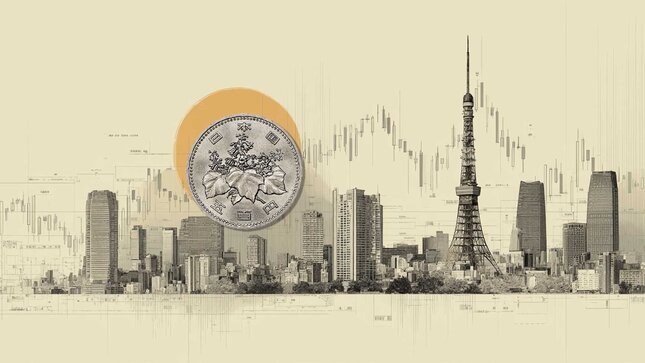![]()
Perhaps the hottest topic in the financial world as well as the general media lately is the subject of High Frequency Trading (HFT). What has got people so interested, angry, and puzzled by this topic is a recent book by author Michael Lewis. In it, Lewis suggests the stock market is rigged and there is a new breed of traders called High Frequency Traders that are front running average investors and making a fortune doing it. Since this story broke a few weeks ago, I have received more and more email and questions on this topic. Traders are wondering if it is even possible for them to have an edge anymore with the presence of HFT. Longer term investors are feeling cheated as they are the victim of front running and have their precious retirement capital in a stock market that is rigged against them. Before we jump to strong opinions and conclusions, let’s take a realistic look at this issue.
HFT traders attempt to enter the market fractions of a second before everyone else using a sophisticated algorithm and profit from the smallest possible fraction of a move with significant volume. If you think this is bad for the average investor, think again. HFT traders are having a big impact on markets but not in a negative way like the general media and Mr. Lewis are suggesting. Years ago, buying 100 shares of a blue chip stock would cost you around $60.00 or so in commissions and another $0.50 or more in the spread. Today, commissions have never been cheaper and spreads have never been tighter than any time in history for the average investor. Spreads have become tighter and tighter over the years simply because of the competition for profit of the spread. If you didn’t get that last sentence, please reread it… Thanks to HFT traders, market makers, and other groups competing for pennies and fractions of pennies in the market, spreads have never been tighter for the average trader/investor. Remember, HFT traders also compete with each other which again is only going to lead to tighter markets. The group that is being hurt is not the average investor but instead, banks and financial institutions who used to enjoy massive spreads and huge commissions. Also, does anyone entering the market for a significant market move really care about someone entering the market a few pennies before you? I would write more on this topic but the subject and perception is so misguided, wrong, and silly that I don’t want to waste any more of your time on it.
The other issue that was raised was the notion that the markets are “rigged.” People who think markets are rigged simply don’t understand them. It is a simple game of buying and selling. The issue is people think how you properly buy and sell in markets is somehow different from how we buy and sell things in any other part of life. The way anyone or any company profits in a marketplace is simply buying at wholesale prices and selling at retail prices. The financial markets are no different and Wall Street knows that. Average investors however are brainwashed from a young age to take the opposite action in the markets which leads to massive under performance and losses. Consider how people buy a stock. They make sure it’s a good company, with strong management, a healthy balance sheet, and the stock price needs to be in an uptrend. Then, everyone wants to buy… Well, when all these items are true in the stock, where do you think the price of the stock is? If you said at or near retail prices, you are correct. Wall Street’s sell signal is the retail investors buy signal and vice versa. When you buy stock, who do you think you’re buying it from? And, who is making all the money, you or Wall Street? I think you get the point. I won’t go into too much detail as I have written many articles on this topic. The markets are not rigged at all, its people’s brains that are misguided on how the market really works and how you really make money buying and selling in the markets.
Hope this was helpful. Have a great day.
Note: All information on this page is subject to change. The use of this website constitutes acceptance of our user agreement. Please read our privacy policy and legal disclaimer. Opinions expressed at FXstreet.com are those of the individual authors and do not necessarily represent the opinion of FXstreet.com or its management. Risk Disclosure: Trading foreign exchange on margin carries a high level of risk, and may not be suitable for all investors. The high degree of leverage can work against you as well as for you. Before deciding to invest in foreign exchange you should carefully consider your investment objectives, level of experience, and risk appetite. The possibility exists that you could sustain a loss of some or all of your initial investment and therefore you should not invest money that you cannot afford to lose. You should be aware of all the risks associated with foreign exchange trading, and seek advice from an independent financial advisor if you have any doubts.
Editors’ Picks

EUR/USD: US Dollar to remain pressured until uncertainty fog dissipates Premium
The EUR/USD pair lost additional ground in the first week of February, settling at around 1.1820. The reversal lost momentum after the pair peaked at 1.2082 in January, its highest since mid-2021.

Gold: Volatility persists in commodity space Premium
After losing more than 8% to end the previous week, Gold (XAU/USD) remained under heavy selling pressure on Monday and dropped toward $4,400. Although XAU/USD staged a decisive rebound afterward, it failed to stabilize above $5,000.

GBP/USD: Pound Sterling tests key support ahead of a big week Premium
The Pound Sterling (GBP) changed course against the US Dollar (USD), with GBP/USD giving up nearly 200 pips in a dramatic correction.

Bitcoin: The worst may be behind us
Bitcoin (BTC) price recovers slightly, trading at $65,000 at the time of writing on Friday, after reaching a low of $60,000 during the early Asian trading session. The Crypto King remained under pressure so far this week, posting three consecutive weeks of losses exceeding 30%.

Three scenarios for Japanese Yen ahead of snap election Premium
The latest polls point to a dominant win for the ruling bloc at the upcoming Japanese snap election. The larger Sanae Takaichi’s mandate, the more investors fear faster implementation of tax cuts and spending plans.
RECOMMENDED LESSONS
Making money in forex is easy if you know how the bankers trade!
I’m often mystified in my educational forex articles why so many traders struggle to make consistent money out of forex trading. The answer has more to do with what they don’t know than what they do know. After working in investment banks for 20 years many of which were as a Chief trader its second knowledge how to extract cash out of the market.
5 Forex News Events You Need To Know
In the fast moving world of currency markets where huge moves can seemingly come from nowhere, it is extremely important for new traders to learn about the various economic indicators and forex news events and releases that shape the markets. Indeed, quickly getting a handle on which data to look out for, what it means, and how to trade it can see new traders quickly become far more profitable and sets up the road to long term success.
Top 10 Chart Patterns Every Trader Should Know
Chart patterns are one of the most effective trading tools for a trader. They are pure price-action, and form on the basis of underlying buying and selling pressure. Chart patterns have a proven track-record, and traders use them to identify continuation or reversal signals, to open positions and identify price targets.
7 Ways to Avoid Forex Scams
The forex industry is recently seeing more and more scams. Here are 7 ways to avoid losing your money in such scams: Forex scams are becoming frequent. Michael Greenberg reports on luxurious expenses, including a submarine bought from the money taken from forex traders. Here’s another report of a forex fraud. So, how can we avoid falling in such forex scams?
What Are the 10 Fatal Mistakes Traders Make
Trading is exciting. Trading is hard. Trading is extremely hard. Some say that it takes more than 10,000 hours to master. Others believe that trading is the way to quick riches. They might be both wrong. What is important to know that no matter how experienced you are, mistakes will be part of the trading process.
The challenge: Timing the market and trader psychology
Successful trading often comes down to timing – entering and exiting trades at the right moments. Yet timing the market is notoriously difficult, largely because human psychology can derail even the best plans. Two powerful emotions in particular – fear and greed – tend to drive trading decisions off course.



